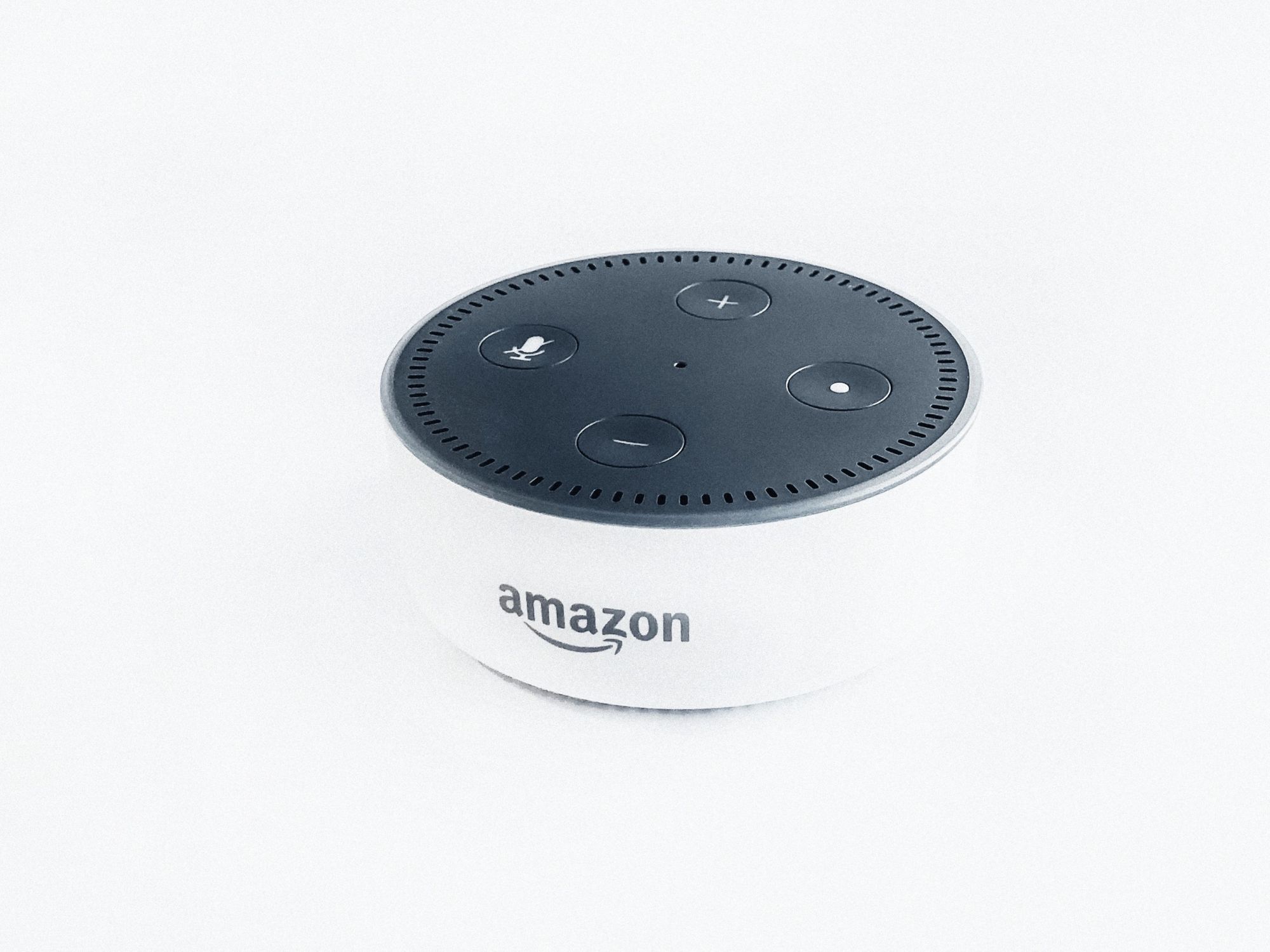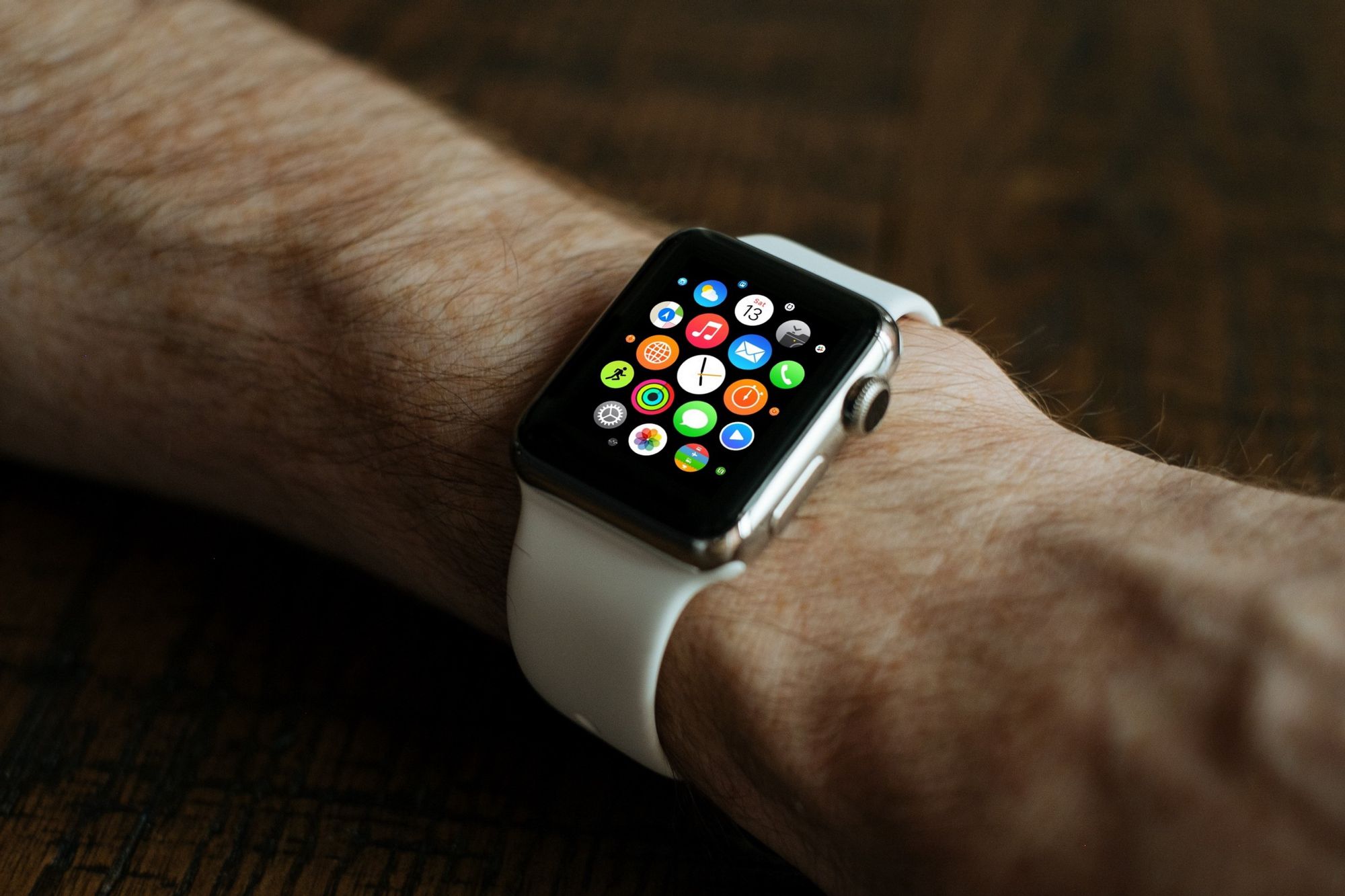Voice and ambient computing — for good


“Alexa, what’s new?”
It’s part of my morning routine — and the routine for 39 million Americans and counting. As I drink my morning coffee, my smart speaker gives me short blasts from NPR News, BBC World News, and the Washington Post. It sounds like there’s breaking news, so I decide to find out what the latest developments are.
I ask it to search for the story, and suddenly I’m listening to live radio shows that are talking about it, right now. There’s some decent conversation on public radio, and I’m looking forward to sharing one quote in particular later on.
My watch lightly taps my wrist to tell me it’s time to head out and go to work. I grab my keys and put on my AirPods. As I leave the house, I double-tap the one in my right ear.

“How long will it take me to get to work?”
Over an hour. Groan. Why does California fall apart in the rain? I double-tap again.
“Call Josh Lucido.”
As I walk through the drizzle, I talk to Matter’s Director of Investments in New York City about some of the latest startups to have applied to join Matter’s five-month accelerator, and how the current portfolio is doing. It turns out we both have a question about how well traffic to our application form is doing, so once I’m off the call, I double-tap again, and ask for a prediction of our web traffic for the next week.
My watch gently taps my wrist to tell me that the rain is about to get a lot harder. I look up at the sky, sigh, and ask for the fastest route to work on public transit.
By carrying a tracking device with me at all times, wearing a haptic bio-sensor on my wrist, keeping an always-on microphone in my home, and handing over my intimate personal information to a collection of private corporations who process it in ways far outside my control, my life sure has become convenient.
Ten years ago, with the introduction of the iPhone, the transition to mobile computing began in earnest — a transition that changed the way all of us access the internet, learn about the world, and think about becoming informed. 85% of Americans get their news on a mobile device.
This year, a new transition is well underway. It could bring a new level of convenience and control to our lives, or it could represent the normalization of ubiquitous surveillance. It’s too early to tell — and the outcome is up to us.
Smart speakers — the Amazon Echo, Google Home, and Apple HomePod — will have a place in over half of American households within the next four years. (Right now, 18% of Americans aged 12+ have access to one.) But that’s just a small portion of the change; between wearable devices like the AirPods, and installations across phones, tablets, and computers, over a billion devices in use today have voice assistant functionality. Speech recognition accuracy hit 95% last year, it continues to improve at a rapid pace. Half of all searches are expected to be conducted with voice by 2020.

Assistants don’t necessarily need to communicate with words. Just as my Apple Watch sends me a haptic tap in order to tell me I should think about taking cover from the rain, a whole new set of calm technology principles are guiding the design of apps that inform us without seizing our attention or forcing us to look at a screen.
However they communicate with us, assistants will change the way we interact with information — and how it is proactively reported to us. Some will come with us in our ears, on our wrists, or, yes, through our phones. Others will be in our homes, offices and cars — built into our ambient environments — and will recognize us as we enter a space. This presents new, exciting opportunities for services that interact with their users conversationally.
The challenge will be to build tools that provide the right information to the right person at the right time, securely, while respecting their privacy.
Last year, as part of a murder investigation, Arkansas police demanded that Amazon turn over Alexa recordings from a suspect’s home. The company resisted, but as Wired reported at the time:
Amazon’s effort to protect the data your Echo collects by invoking the First Amendment is commendable, but the company has failed to address the real problem: Why is all that data just sitting in Amazon’s servers in the first place? The brief Amazon filed in the Arkansas court confirms that the company saves the recordings and transcripts of your dialogue with Alexa on servers where “all data is protected during transmission and securely stored.” So should we just trust that Amazon’s servers are impenetrable?
The issue is not just that this information might be used in ways we don’t expect. People behave differently when they know they’re being observed, and are less likely to exercise their right to free speech. This is particularly true in more vulnerable communities — exactly the people whose voices should be amplified and empowered by new technology.
A world of always-on microphones and intelligent cameras has the potential to make us all more informed — but it also has the potential to build a new layer of surveillance that creates a chilling effect and suppresses free speech. Ethical technologists can help ensure that these new technologies are open to all voices and respectful of our privacy needs. By being intentional about how we design products and signpost their stewardship of our rights and data, these technologists can harness these new technologies while protecting users and safeguarding freedom of speech.
We want to support those technologists. If you’re using voice or ambient technology to create the next generation of apps that will make us more informed, close empathy gaps in our society, or make the world more inclusive, we want to hear from you. Applications for Matter are open now.
Matter is an SF & NYC-based startup accelerator and venture capital firm grounded in the principles of design thinking that supports early-stage media entrepreneurs and mission-aligned media institutions building scalable ventures that make society more informed, inclusive, and empathetic.
Our mission has never been more important than it is today. We are looking for scrappy entrepreneurs inspired to make real change. Our next cohort starts on August 13th, 2018. Apply now.
For regular updates, follow us on Facebook, Twitter, and Instagram, and subscribe to our mailing list.

